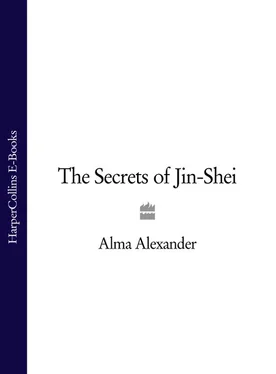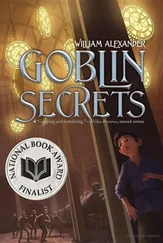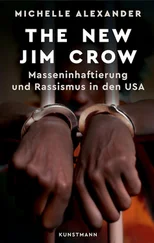1 ...7 8 9 11 12 13 ...32 Many niches were empty, their own particular deity yet to appear. These were the Later Heaven deities and spirits, the lesser Gods, the spirits of Rain and Thunder and Wind and Fire, Tsu-ho the Kitchen Spirit of Plenty, Hsih-to the Messenger of the Gods, the Syai Emperors of old, and the Holy Sages. This was the place of propitiation, of honouring the Wise, of paying respect to the Great, of asking for advice. Nhia would sometimes drift past the niches with supplicants (sometimes more than one, companionably sharing a deity’s time and attention and often the offering) and absorb the whispers going on around her – whispers asking for help, giving thanks, telling the Kitchen God of the success of a particular feast which was held in the midst of plenty and humbly giving him credit.
‘Please, Rain Spirit, our fields are parched and drying, we humbly come to ask …;’
‘I offer rice and grain in humble gratitude, for my son has found a good bride …;’
‘O Holy Sage, who knows of these things, I come to ask for guidance, for the examinations are near and this problem is too great for me to understand …;’
‘Holy Hsih-to, Messenger of the Gods, please help me make my husband stop being angry at me – for I did not mean it when I said to him …;’
‘Help me, Hsih-to, for my mother-in-law is driving me distracted …;’
These were the simple questions, but they were also the most fundamental ones, the ones lives were built on – and the shrines were open, and there were few secrets. This was the backbone of the Way, the little things that, left unattended, would grow into catastrophes – but which were still small enough, human-scaled enough, to belong to these lesser Gods and spirits and for which the greater deities were not to be disturbed.
For more, for greater miracles, the three arrow-straight corridors leading from the outer gates pierced this Circle full of incense and whispers. Within the inner courtyard of this Second Circle stood another building, this one painted a darker blue, the blue of an autumn sky. Its inner cloisters, also on two floors, were quieter, more sparsely populated. Here, in the Third Circle, there were fewer niches, and the Gods in them were the lower deities of Early Heaven – Cahan, the Spirit Paradise. Here resided Yu, the general of the Heavenly Armies; Ama-bai the Great Teacher; the Rulers of the Four Quarters – Kun, Lord of the North, Sin, Lord of the East, T’ain, Lady of the West and K’ain, Lady of the South. These were the weavers of human fates, the first deities in the tiers of the Heavens with real power over lives, dreams and destinies. Nhia’s astrological antecedents had been complicated – she had been born between two Quarters, and her mother had made offerings to both Sin and K’ain, making sure that she left no stone unturned when she came to pray for Nhia – but it seemed that the in-between children were neither Ruler’s responsibility and Nhia’s mother’s prayers had fallen in the cracks.
It was more expensive to come here than in the Second Circle, for the deities of the Third Circle had their own attendants who tended to the offerings and the lighting of candles and incense sticks so that all was harmonious and acceptable. There was no companionable sharing of Gods and altars here. People came to the Third Circle with a purpose.
Another level deeper in stood the Fourth Circle – not a round building like the others, but a three-sided, three-storey structure. Each of its three sections, all three floors of it, was devoted to one of the Three Pure Ones, the rulers of the Three Heavens of Cahan – the Shan, the I’Chi, the Taikua, the realms of Pure Spirit, Pure Energy, Pure Vitality. The building was painted a darker blue, inside and out, and inside its many candles and lanterns gleamed like stars. The place was full of silence and mystery, and Nhia loved to lose herself here sometimes, when she had hoarded enough coppers to buy an offering rich enough to allow her into this Circle. The inner garden, separating the Third from the Fourth Circles, had scented flowers, and meditation areas with golden sand raked smooth and granite rocks placed as focus for a supplicant’s thoughts. The altars in the Fourth Circle were carved in smooth marble or covered with costly golden silks, tended by special attendants clad in blue and gold and sworn to each deity’s service. There were secluded alcoves where those who came to honour these deities could withdraw after making their offering to the acolytes, and commune in private with the God they had come to revere.
The three straight corridors passed through this quiet, holy place too and finally entered the heart of the Temple – a midnight-blue tower standing in the middle of the inner court of the Fourth Circle, the home of the Lord of Heaven. The worshipper entered this place barefoot, leaving shoes outside the gates, for this was holy ground. Nine small altars ringed the centre of the Tower, three to each gate; these were followed by an inner ring of three larger ones, one per gate, where oil lamps always burned to signify the presence of the God. Beyond these, three steps on a marble platform, was the altar of the Lord of Heaven where the Emperor himself came to sacrifice for Syai’s well-being on the eve of every New Year – an altar where a holy fire burned in a central bowl and cast a flickering light on the carefully arranged offerings tended by one of the three Tower priests. High above, reachable by a catwalk that clung to the walls of the Tower well away from the altar, hung the gigantic brass bell which was rung by the priests every day at noon.
A complex place for a complex faith, an orderly set of beliefs on which heaven and earth were made, a creed which assigned everything to its perfect, particular place.
Nhia had been brought there for the first time when she was a babe in arms, barely born, perhaps a week old – her mother had brought her in, purchased amulets, purchased potions, offered her child and her child’s troubles to the deities of the Second Circle and begged for deliverance. But Nhia’s twisted leg and withered foot did not go away. The child crawled a lot later than most children did, unable to put any weight on the crippled limb; she had not walked until she was almost four years old, and even then it was with a pronounced limp. By that time her mother had progressed to the Third Circle, entreating for salvation from higher authority – but no amount of incense or rice wine helped, and ganshu readings were inconclusive.
The Temple was a daily stop, and more often than not Nhia was required to accompany her mother the supplicant so that she could show the Gods just what they had to do for her. Any other five-year-old or six-year-old or seven-year-old, and as the years wore on Nhia reached and passed all those milestones, would have started pulling the Temple apart stone by stone from sheer boredom. Nhia was different. Her physical disability focused her mind on things others might have missed, and even as a very young child she was an acute observer and an astute interpreter of the throngs of humanity she saw parading in and out of the Temple every day. By the time she was ten she had taken to coming to the Temple by herself. She would strike up conversations on the theology of the Way with some of the younger and more indulgent acolytes of the outer Circles, or some of the older ones willing to indulge an interested and precocious child. It was all couched, as much wisdom of the Way was, in ancient tales and fables. There were many, but there was one which most of Nhia’s Temple friends always returned to in the end.
‘When the evil spirits tricked Han-fei into raiding the Gardens of the Gods …;’
‘I know, I know,’ Nhia would interrupt when this sentence was offered to her. ‘He picked too many of the plums from the Tree of Wisdom, and could not carry them, and had to leave all of it behind when he was driven from the Garden by the angry Gods. I know, sei , I know. The plums of wisdom should be taken one by one and savoured. But I would still like to know …;’
Читать дальше






![Theresa Cheung - The Dream Dictionary from A to Z [Revised edition] - The Ultimate A–Z to Interpret the Secrets of Your Dreams](/books/692092/theresa-cheung-the-dream-dictionary-from-a-to-z-r-thumb.webp)





